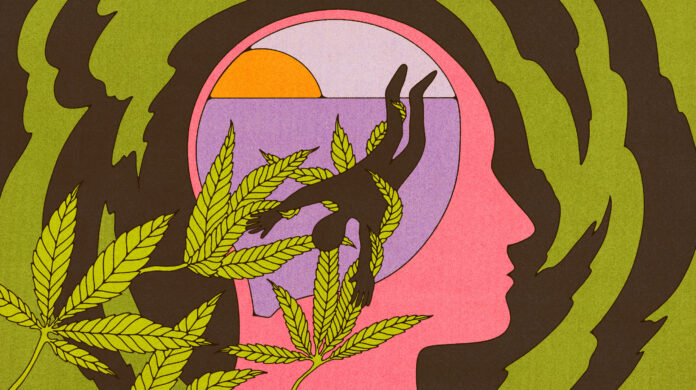The stresses of life wear down an individual with poor mental health. Under the pressure of several factors, many suffer from mental disorders and conditions that make it difficult to cope with day-to-day activities, learn new topics, or work efficiently. Living within the community can also become a burden for some.
Therefore, people are in search of options for improving their mental well-being. THC, or tetrahydrocannabinol, is among the several cannabinoids in the weed plant. Consuming this component will interact with your body’s cannabinoid receptors. Some individuals use CBDfx THC Oil or eat weed to treat or restrict certain mental health conditions.
While you may have doubts about cannabis’ effects on the human mind, this article will deal with the significance of THC for mental health.
What Do You Understand By Cannabis?
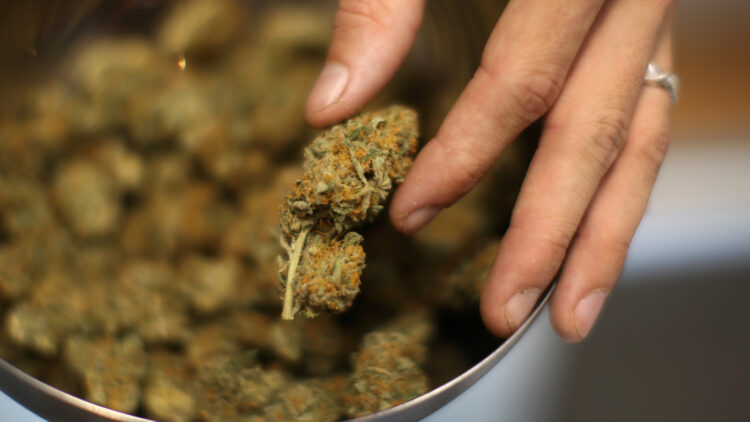
Cannabis, a drug obtained from the marijuana plant, goes by various names like hash, marijuana, grass, weed, pot, ganja, and many more. Strong cannabis types go by the name skunk. One can eat and smoke marijuana. Some people prefer to mix cannabis with tobacco for smoking. Others like to drink tea or eat it as food.
Individuals may utilize weed for multiple reasons, like alleviating physical or mental health symptoms. Cannabis comprises 120+ components called cannabinoids. Two commonly known cannabinoids are CBD (cannabidiol) and THC (tetrahydrocannabinol).
Differentiating CBD and THC
THC and CBD have their effects and uses.
CBD: This psychoactive cannabinoid is not euphoric or intoxicating and does not offer you the high. CBD works towards treating individuals who suffer from chronic pain and inflammation. Some patients utilize it for calming seizures, anxiety, nausea, or migraines. However, research is ongoing to decipher CBD’s effectiveness in medicinal usage.
THC: Unlike CBD, THC offers psychoactive properties. As a primary psychoactive compound, it gives the high many associated with the weed’s usage. Several individuals who use THC vape can experience these effects. Additionally, this compound may have psychoactive side effects. Like CBD, THC also helps soothe pain, anxiety, nausea, inflammation, migraine, etc.
Impact Of THC and CBD On the Human Body
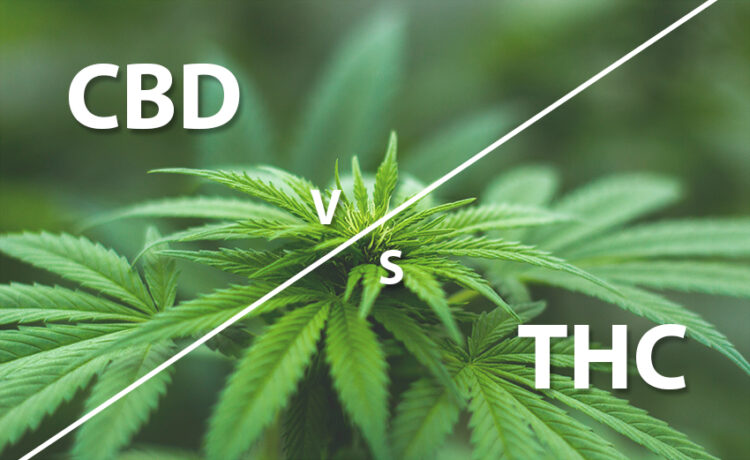
Besides feeling high with the usage of THC, it also binds with the cannabinoid receptors in the brain. These receptors manage your feelings, pain, and mood, thus providing you with a euphoric feeling. CBD, on the other hand, does not cause any highs and helps your well-being.
Working Of Cannabis
Cannabis enters your bloodstream with the use of THC vape or smoke ganja. Since smoking is a faster way of experiencing the effects, CBD and THC will effectively reach your brain and combine with the cannabinoid receptors. Your body comprises nerve endings called receptors that react to stimuli or specific changes. Hence, these compounds greatly influence how you behave and feel.
When you eat marijuana, it will take a little longer to reach your bloodstream as it must travel across your liver and stomach. Remember, the greater the THC quantity in a plant, the higher the effects. CBD also has the properties of reducing THC’s psychoactive effects like paranoia and hallucinations. CBD also contributes to treating anxiety.
Evidence For THC And CBD For Mental Health Problems
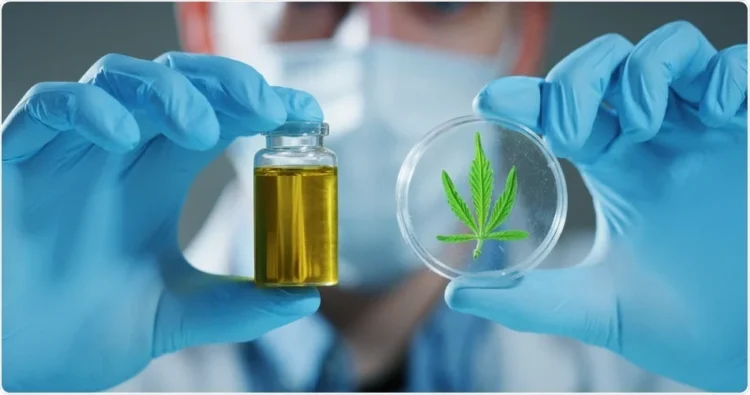
Researchers have had several studies under their analysis to understand cannabinoid usage for treating various symptoms of mental problems. These studies examine the treatment of anxiety, depression, psychosis, PTSD, ADHD, etc.
According to the findings, THC vape helps reduce anxiety in individuals regardless of CBD’s inclusion. Other studies have shown that THC, excluding or including CBD, does not influence depression.
For psychosis, there is no evidence that THC may help in reducing the symptoms. Some evidence suggests that THC may even worsen psychosis symptoms. Psychosis often occurs in individuals with bipolar disorder, schizophrenia, or extreme levels of depression.
Benefits of Using Cannabis for Mental Health
A coin has two sides, similar to the results of several analyses in understanding how cannabis benefits mental health. There is evidence that cannabis can relieve the symptoms of mental illnesses such as depression and PTSD. Let us look at how using cannabis helps with anxiety, depression, and schizophrenia:
Anxiety and Depression: Relationship problems, stressful work life, and hectic schedules are common reasons several individuals suffer from anxiety disorders. These problems often lead to insomnia, sexual disorders, or headaches. Cannabis influences your body to release endorphins and elevate your mood.
Continuous and monitored usage of cannabis may elevate depression. Research suggests that cannabis usage may also sharpen an individual’s cognitive capabilities. Hence, one can consider cannabis as a therapeutic medicine for the treatment of mental conditions and helps regain well-being.
Schizophrenia: This mental health problem impairs the regular brain functioning of individuals and causes them to lose touch with reality. Its symptoms include communication difficulty and hallucinations.
Note that research is still in progress. Some studies reflect that cannabis can reduce psychotic effects and aid your nervous system in forming connections with the neurons and transmitting messages to other body parts. Hence, cannabis may help treat dementia and schizophrenia.
However, another study depicts that schizophrenia problems for thirty percent of young males can avoid schizophrenia by not using marijuana. Consequently, this subject matter demands many more studies.
Caution When Using THC and CBD
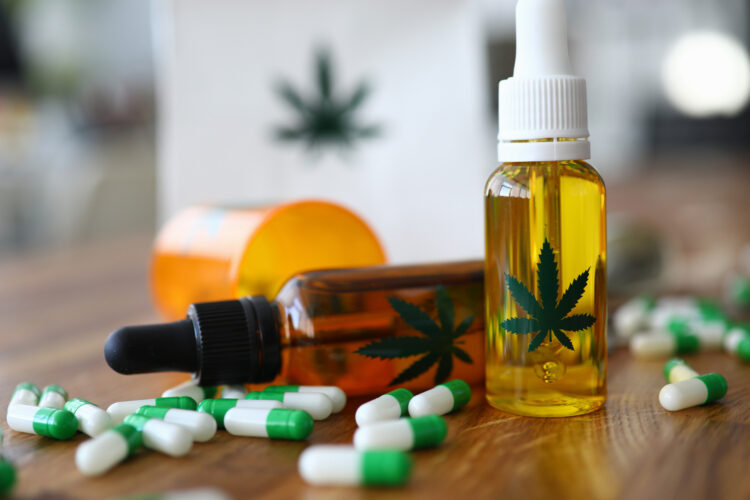
When pain becomes unbearable, several individuals find relief by using cannabinoids with THC vape pens or smoking marijuana. However, they often ignore the adverse effects brought about by extended usage of prescription opioids.
Many people also use cannabinoids to cure mental health conditions. Some are on self-medication to treat anxiety and depression with THC and CBD. However, evidence is still lacking for how cannabinoids help with mental health issues.
However, this does not diminish the fact that cannabinoids can be effective for treatments. Many new studies are also progressing regarding the pharmaceutical CBD benefits for conditions like psychosis.
Until clear evidence, it is advisable to use cannabinoids for mental health with precaution. As helpful cannabis can be for mental health illnesses, you should be careful about the side effects and use THC cautiously.
Conclusion
If you are dealing with mental health problems like anxiety or depression, you may want to consider THC vape to self-medicate. However, you must consult with a psychiatrist or relevant mental health professional.
According to evidence, THC may help reduce anxiety with lower cannabis doses but not with increased dosage. Certain studies suggest that cannabis can help with depression but may worsen psychosis symptoms. Therefore, it is ideal to practice caution to not further deteriorate your health.

